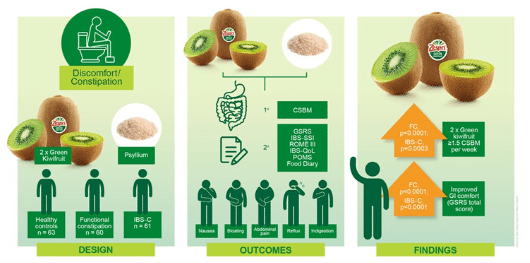4 Food Safety Tips For Those With Digestive Conditions
When was the last time you thought about food safety? We know that it’s not the most glamorous health topic out there, but educating yourself can help protect your health and could even be lifesaving.
If we don’t practice food safety, we increase our risk for food-borne illnesses like salmonella and certain strains of E. coli. Safe food handling is especially important for those who have or are at risk for digestive conditions. We’ll discuss why this is and give you four actionable tips to keep you and your family safe!
Why does food safety matter?
Symptoms of food-borne illness can range from a mild case of diarrhea to a life-threatening condition that requires hospitalization. Children, elderly people, and those with compromised immune systems are at higher risk for serious complications from food-borne illness.
Researchers are also exploring the association between food-borne illness and digestive conditions.
There is emerging research on a specific type of irritable bowel syndrome (IBS) called “post-infectious IBS”. Those who are categorized as having post-infectious IBS developed their IBS symptoms after a gut infection (acute gastroenteritis). While the infections could be from any source, one common cause of gastroenteritis is food-borne illness.
Gastrointestinal infections may also be connected to inflammatory bowel disease (IBD). Research done on animal models showed that gastroenteritis increased the risk of Crohn’s disease. In humans, it was found that previous episodes of gastroenteritis increased the chances of developing IBD.
Those who already have IBS and IBD also need to be mindful about food safety. You don’t want to make your symptoms worse by having to deal with a gut infection on top of your digestive condition. Also, those with IBD may be at higher risk for complications from gut infections and should be especially careful.
4 Food Safety Tips
Is the leftover chicken that’s been sitting in the back of the refrigerator still okay to eat? How about the egg salad that was left on the counter overnight? Here are four food safety tips to help keep you safe from food-borne illness!
1. Clean
You should get in the habit of washing your hands before, during, and after touching food. If you are handling raw meat, you should wash your hands immediately after to avoid spreading germs to surfaces or other foods.
Kitchen towels that you use to dry your hands with should be cleaned regularly so they don’t spread germs.
You should also wash all of your utensils, cutting boards, and counters. Some people like to keep their cutting boards out on the counter and use them a few times before washing. You should be washing your cutting boards after every use!
It’s important to wash fruits and vegetables with a scrub brush. There is no need to wash meat, poultry, or eggs. Doing so can actually cause germs to spread from the meat to other surfaces of the kitchen.
2. Separate
Proper separation of foods can help prevent cross-contamination. Raw meat and produce should be kept separate during food preparation and storage.
You should use different cutting boards to cut raw meat and produce. You should also store the meat on a shelf below the produce in the refrigerator to prevent any dripping juices from contaminating your raw fruits and veggies.
3. Cook to correct temperatures
Using a food thermometer while cooking can help you know when your food is done. Use this chart to help you determine what the safe cooking temperature is for each food item.
After cooking, keep food at 140˚F or above until serving it. This is an important tip for larger gatherings where food might end up sitting on the table for a long time before the meal begins.
4. Refrigerate
Who doesn’t love leftovers?
It’s important to keep any food you are not eating right away safe by refrigerating it within 2 hours of cooking.
This chart provides a quick reference for how long different foods can be kept in the refrigerator. It’s always better to throw out food if you are not sure if it’s safe to eat. Remember, “when in doubt, throw it out!”
While everyone can benefit from following these four food safety tips, those with digestive conditions should be particularly careful. So the next time you’re in the kitchen, don’t forget to clean, separate, cook, and refrigerate!
Related Resources:
Listen to our
latest Podcast!







